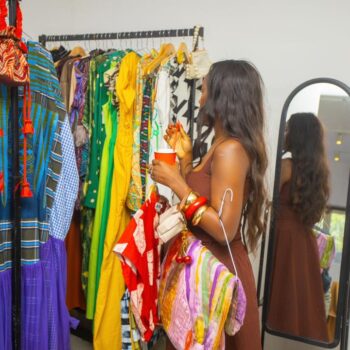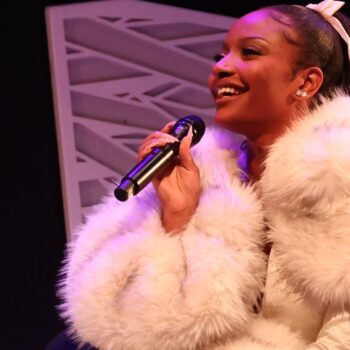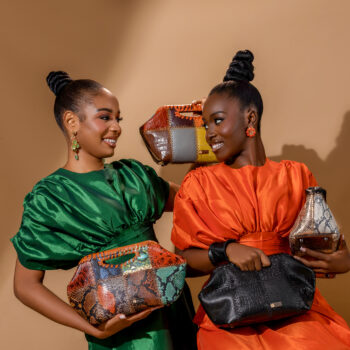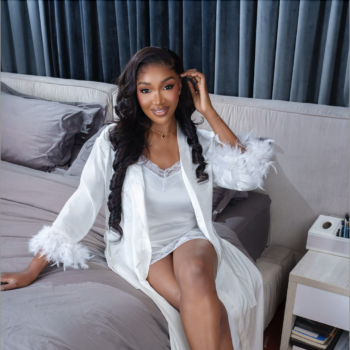The ever-stunning Lupita Nyong’o is officially the cover star for THR‘s new issue. Wearing a slew of vibrant designer looks in a variety of pink, blue, and gold for the editorial. While some of the separates are quite structural, others are more fluid — namely the deep v-neck wool and silk-blend pink gown by Valentino capped off with a vibrant eye look, locs and no jewellery.
View this post on Instagram
On the cover, the actor sports a gold two-piece featuring exaggerated matching wide-leg pants accessorized with gold drop earrings and vibrant eye makeup paired perfectly with a locs updo. The rest of the shoot includes everything from vibrant pieces to structural dresses.
For the cover story, Lupita talks about the pressures of personifying Black beauty and the experience of making Black Panther: Wakanda Forever while grieving late co-star Chadwick Boseman.
View this post on Instagram
See excerpts from the interview below:
On Chadwick Boseman before and after his sad passing:
Nyong’o had known Boseman was sick but not that he was terminally ill, and she learned of his death in a text from Viola Davis. “I couldn’t believe it,” Nyong’o says. “I was paralyzed.” For her, as for many of the film’s cast and crew, Boseman had been much more than a colleague; he had been a kind of spiritual anchor. “He had an aura,” Nyong’o says. “He was the leader, and we were all good with it.”
Nyong’o watched how Boseman carried the responsibility of being the lead on a massive movie and also how he maintained his boundaries. “There were moments when Chadwick said no to me, and I was not happy with him,” she says. “I fought tooth and nail to change his mind, and he would ever so quietly be like, ‘I know, but no,’ with love.” Once, she wanted him to come to South Africa with her and Danai Gurira to promote Black Panther. “I felt it was important to have him on the continent, as an African American coming to South Africa. I thought that was a potent symbol, and he wouldn’t go,” Nyong’o says.
On personifying black beauty :
A major part of Nyong’o’s persona has been her beauty and the barriers she has broken as a dark-skinned Black woman. By now, that image of Nyong’o is so ingrained, it’s a Beyoncé lyric in the song Brown Skin Girl — “She needs an Oscar for that pretty dark skin/Pretty like Lupita when the cameras close in.”
But in 2014, when she became the first Black actress to land a Lancôme contract and was also named People magazine’s Most Beautiful, the experience of personifying Black beauty was sometimes disorienting. “I was the subject of a much larger conversation, a socio-political one,” Nyong’o says. “I appreciated that larger conversation and at no point did I not want it to be happening. But I wanted to participate in the practice of being me, not in the theory of being me.”
View this post on Instagram
To see the full feature with Lupita Nyong’o, click here.
Credits
Photographer: Christian Cody @christian_cody
Stylist: Micaela Erlanger @micaela
Hair: Vernon Francois @vernonfrancois
MU: Nick Barose @nickbarose
Manicure: Bagir Hasanov
Set Design: Stockton Hall @stocktonhall
Producer: Sway NY @get_swayed
Location: Root Studios Brooklyn @rootstudios




